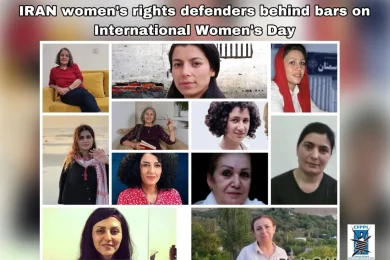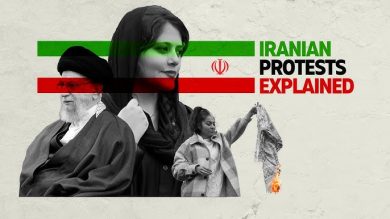In the prisons of the Islamic Republic of Iran, where walls are meant to isolate and silence, many Iranian women continue to resist with fierce determination. These women are not mere prisoners—they are symbols of resilience, courage, and unwavering commitment to justice. Though incarcerated by the Islamic Revolutionary Guard Corps (IRGC), they have refused to be broken. Their stories are not only narratives of suffering, but powerful testaments to human dignity and the unrelenting spirit of resistance.
1. The IRGC’s Prison System: A Tool of Suppression
The IRGC plays a central role in the detention and psychological warfare against women who speak out. Activists, journalists, students, lawyers, and ordinary citizens who have dared to question the regime’s authority often find themselves inside Evin or Qarchak—prisons notorious for inhumane conditions.
• Evin Prison: Known as Iran’s most infamous detention center, it is run in part by IRGC intelligence agents who oversee interrogations, solitary confinement, and forced confessions.
• Qarchak Prison: An overcrowded women’s prison infamous for squalid conditions and physical abuse, particularly targeting political prisoners.
2. Crimes of Conscience: Why These Women Were Imprisoned
The women who populate these prison cells are not criminals. They are political prisoners, often charged with vague terms like “propaganda against the state” or “acting against national security.” Their real “crime” is:
• Removing the mandatory hijab in protest
• Reporting on police brutality or corruption
• Participating in peaceful demonstrations
• Defending human rights in courtrooms
3. Stories of Defiance
Narges Mohammadi
A Nobel Peace Prize laureate and human rights activist, Mohammadi has spent years behind bars. Despite chronic health issues and repeated abuse, she continues to document conditions inside prison, publish letters to the world, and demand change from behind bars.
Sepideh Gholian
After covering labor strikes and speaking out against injustice, Sepideh was detained, tortured, and forced into a televised confession. Upon release, she returned to Evin Prison chanting anti-regime slogans—an act of fearless defiance.
Nasrin Sotoudeh
Renowned for defending women’s rights and political prisoners, Sotoudeh has been repeatedly arrested and sentenced to long terms. Her work from prison inspires lawyers and activists around the globe.
4. Resistance Behind Walls
Resistance doesn’t end at arrest—it transforms. In prison, these women continue to:
• Write open letters
• Stage hunger strikes
• Smuggle testimonies of abuse
• Organize educational sessions among inmates
• Defy guards and prison policies with dignity and purpose
Their existence in such spaces turns confinement into a frontline for human rights.
5. The Cost: Physical and Psychological Toll
The IRGC’s prison tactics aim to break the will of detainees:
• Sleep deprivation
• Threats against family
• Physical beatings
• Sexual harassment
• Denial of legal access and medical care
Yet, for many women, these tactics only fuel their belief in the righteousness of their cause.
6. Global Silence and Global Solidarity
Too often, the world turns away. But voices of solidarity from the diaspora and human rights organizations have played an essential role in keeping these women’s stories alive. Campaigns such as:
• #FreeNasrin
• #WomenLifeFreedom
• #FreeIranianWomen
have helped internationalize the cause.
7. The Role of the Diaspora and International Media
Iranian women abroad and global media play a critical role in:
• Broadcasting prisoner testimonies
• Lobbying governments to sanction IRGC officials
• Offering legal and psychological support to former prisoners
• Pushing international bodies to hold Iran accountable for crimes against humanity
8. These Women Represent Iran’s Future
These prisoners are not victims. They are leaders-in-waiting. When the current regime fades into history, it is these women—educated, principled, and brave—who will rebuild a free Iran rooted in justice and equality.
Conclusion: Courage Cannot Be Caged
The regime may use prison bars to contain bodies, but it cannot cage ideas. The resistance of Iran’s imprisoned women continues to shake the walls of authoritarianism.
Join Our Newsletter!
Stay informed with the latest updates, news, and ways to take action in the fight for justice and global security. Sign up now to get updates delivered straight to your inbox!





